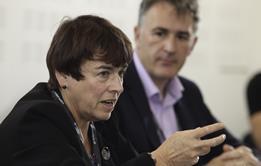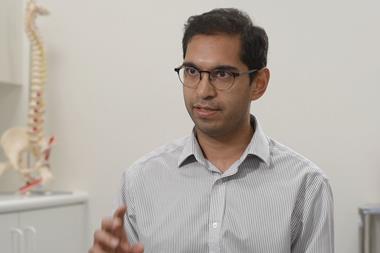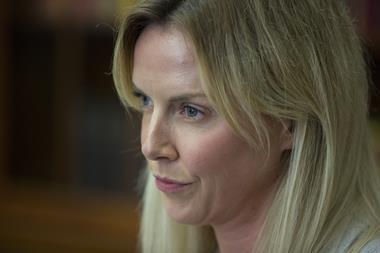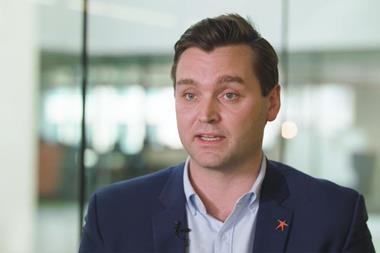One of the points repeatedly made during the round table was the importance of engaging staff – especially those on the front line – in decisions about which product to use.
Several of those round the table had been involved in difficult procurement decisions which had involved clinicians changing the products they had been used to and had first hand knowledge of the issues. In extreme cases staff were reluctant to use the new products.
Dr Hamilton-Fairley said a culture of ownership was important. “If you impose new gloves on surgeons, they are not going to like it,” she said. “If there is no ownership by surgeons or anaesthetists then that is inherently a safety problem.”
‘The bottom line has to be engage from the beginning. Right before you go out to tender, you ask staff what they want out of the product’
At Salford Royal, there are clinical advisory groups which look at which products to use, and the medical director had led the process of looking at which gloves to buy. Mr Lever said the options were outlined to them and it was then a clinical decision on which to adopt.
Alison Bakewell, matron in ICU at George Eliot Hospital Trust, said : “The bottom line has to be engage from the beginning. Right before you go out to tender, you ask staff what they want out of the product.”
In her trust, staff were now involved in developing specifications before the trust went out to tender: this allowed them not only to feed in what the product should do but also aspects such as training and education alongside them.
Professor Reid pressed the need for staff education – without which there could be increased risks for the patients.
Vested interest
Mr Lever said: “It is about procurement being visible not just to the workforce but also to the suppliers.” He urged organisations not to remove suppliers from the process but to engage with them.
Patients too ought to be involved in some of these discussions and in developing new products, panellists argued. Professor Reid said there was a strong public interest in this: “They really have a vested interest in terms of their own health and their outcomes. How is industry using the patient voice in co-development and co-design?” She called for honesty around choice, access and consent.
Mr Smith said he wanted to have a patient representative on some of the groups within his organisation. ‘‘You can stick a plaster on a patient or a tube in them but how does it feel for them?”
Topics
Roundtable: How can industry play a part in boosting patient safety?

HSJ’s latest event asked panellists how the NHS’s industry partners might contribute to improving the service’s safety culture. Report by Alison Moore
- 1
 Currently
reading
Currently
reading
Roundtable: engaging staff in the patient safety mission
- 3











































No comments yet